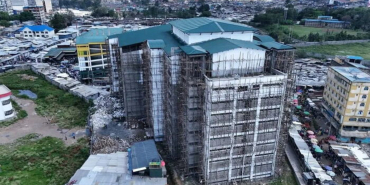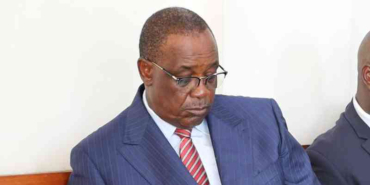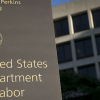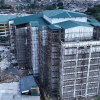MPs Oppose Government’s Secretive Move to Restrict Access to Areas in Garissa, Tana River

A contentious government decision to designate sections of Garissa and Tana River counties as protected areas is facing mounting parliamentary opposition over concerns of inadequate public participation and potential security implications.
The declaration, formalised through a legal notice issued on May 16, 2025, restricts access to specific zones, including National Intelligence Service (NIS) campuses, and has ignited a political firestorm in the affected regions. The government, through Interior Cabinet Secretary Kipchumba Murkomen, defends the action as necessary to safeguard critical national intelligence infrastructure. According to the legal notice, access to the specified areas, including NIS facilities in Masalani, Jamhuri (Garissa), and unspecified locations in Tana River, will require authorization from NIS Director-General Nordin Haji.
The stated objective is to bolster security and prevent unauthorised access to sensitive installations. However, lawmakers representing the affected communities have vehemently criticised the move, alleging a lack of transparency and raising concerns that the restrictions could inadvertently exacerbate insecurity. Fafi MP Salah Yakub has emerged as a vocal opponent, questioning the secrecy surrounding the gazettement and warning that restricting access could transform the region into a target for Al-Shabaab and other terrorist groups.
Yakub argues the declaration undermines local security efforts, demanding government actions align with residents safety concerns. Drawing a parallel to the controversial Guantanamo Bay detention facility, Yakub urges President William Ruto to revoke the gazettement, emphasising that the government was elected to enhance, not compromise, security. He also accuses authorities of failing to consult with local communities, indicating the potential for legal action if the decision is not reversed.
The intensity of Yakub's stance has been amplified by a brief withdrawal of his security detail, which was later reinstated. Tana River Senator Danson Mungatana is advocating for parliamentary intervention, pressing the Senate National Security and Defence Committee, chaired by Isiolo Senator Fatuma Dullo, to investigate the justification behind the government's actions. Mungatana highlights the absence of adequate public participation and compensation during land acquisition for the NIS campuses in both Garissa and Tana River, raising questions about transparency.
A key point of contention centres on the lack of clearly defined geographical coordinates specifying the size of the protected areas. Mungatana argues that this omission fuels suspicions of irregular land appropriation, asserting that local communities should not be treated as secondary stakeholders in decisions that directly impact their livelihoods. "Why are we doing this in secrecy?" he questions, underscoring the need for due process in land matters.
Mungatana has urged the parliamentary committee to demand clarity on the scope of public consultations that preceded the gazettement. He emphasises that transparency is vital in matters affecting communal land rights and warned that opposition will escalate if the government fails to justify the lack of territorial boundaries and stakeholder engagement.
This controversy exposes long-standing grievances in Northern Kenya, where communities have historically faced government restrictions and security challenges. For many residents, the sudden declaration reinforces fears of marginalisation and raises doubts about authorities' commitment to their welfare.








Add new comment